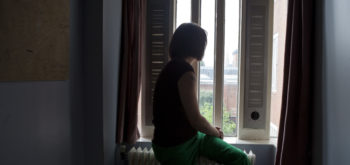The Court of Appeal heard last week that the conviction of Emma-Jayne Magson for murdering her violent partner in 2016 was unsafe and should be overturned following new evidence concerning Magson’s mental health. Magson’s lawyers are arguing that the defence of diminished responsibility should have been made available to her.
This appeal follows the case of Sally Challen, a story which the Justice Gap have previously reported on (here). Challen’s murder conviction for killing her emotionally abusive husband with a hammer was quashed in February. The landmark case saw prosecutors accepting a plea for manslaughter on the grounds of diminished responsibility.
Magson’s case is not the only significant case that follows in the wake of Sally Challen. Last week Farieissia Martin’s successfully applied to appeal against her murder conviction for killing her abusive partner. Nic Mainwood from Justice for Women said of the appeals: ‘With Sally Challen’s landmark case and now Farieissia Martin being granted leave to appeal this week, Emma-Jayne and her family have a renewed sense of hope that the Criminal Justice System is becoming much more aware of the circumstances in which abused women have been killed’.
Sally Challen and her son David were both outside court on December 10 to show support to Magson. David said: ‘I’m here to support Emma because like my mother, she’s a victim of abuse and we need to recognise the truth events that led to the death of James.’
Magson was convicted of murder for killing 26-year-old James Knight with a single stab wound to the heart in March 2016 and was sentenced by Leicester Crown Court to life imprisonment with a minimum sentence of 17 years. The Court of Appeal heard that on the night he died, James Knight had kicked in the door of the couple’s home having been violent to Magson earlier in the day. The couple are said to have had a violent relationship with allegations that Knight kicked Magson in the abdomen after she had a miscarriage.
There were two grounds of appeal. The first that Magson suffered from an Emotionally Unstable Personality Disorder (EUPD) at the time of the offence. This disorder is said to be rooted in witnessing domestic abuse as a child, experiencing bullying at school, parental neglect and historically playing a deferential and subservient role to male figures in her life. This evidence was not presented to the court at Magson’s trial. The appeal has been led by Clare Wade QC who said to the court that that Magson’s condition ‘substantially impaired her ability to exercise self-control and that EUPD provides an explanation for her conduct and was a significant contributory factor causing the appellant to stab the deceased’.
The court heard evidence from Dr Gareth Garrett who had assessed Magson in 2016 and did not consider her to have EUPD. Dr Garrett has now changed his mind on this point, meaning that the defence of diminished responsibility should be available to her. However, William Hughes QC, representing the prosecution, put to the court that ‘this is a case where the fresh evidence sought to be relied upon could have been obtained before or at the time of trial, rather than post-conviction’.
The second ground of appeal is based on Magson’s failure to participate effectively in the trial. Magson did not give evidence meaning that the jury had no opportunity to hear about her experiences of domestic abuse. An expert will give evidence of Magson’s comprehension difficulties to support the argument that she was not able to understand the trial process and Magson’s lawyers will argue that there should have been an intermediary appointed to support her throughout.
This appeal is supported by Justice for Women, the same organisation who championed Sally Challen’s case.






